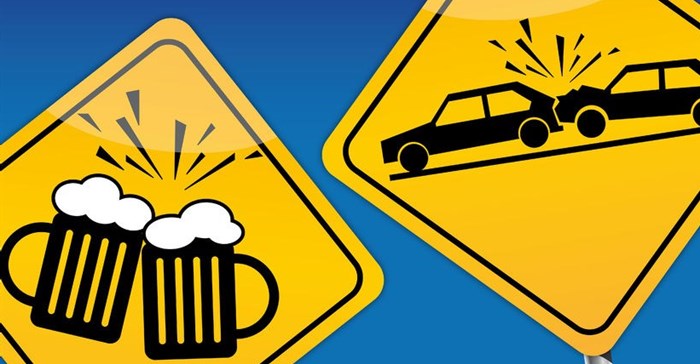
Top stories






More news





ESG & Sustainability
#Sona2026: President announces crisis committee to tackle SA's water challenges









Dawie Buys, manager of Insurance Risks at the South African Insurance Association (SAIA), warns South Africans to take heed of this shocking statistic and to never get behind the wheel or drive with anyone who exceeds the alcohol limit of 0.05 gram per 100 millimeters.
"As we approach the holiday season, a time when drunk driving fatalities historically spike, it must be top of mind for all motorists that drinking and driving is simply not an option, as motorists literally hold their lives and the lives of other road users in their hands."
According to the report, a person has a 26.6% chance of dying in a road accident in Africa, with the next most dangerous region being the Eastern Mediterranean where one has a 19.9% chance of being killed on the road. "South Africa remains one of the more dangerous countries for road safety, with 25.1 deaths per 100,000 population. The report noted, however, that there has been a steady improvement in danger levels since a peak of 33 deaths per 100,000 people, recorded in 2006."
It is generally accepted that 80% to 90% of road crashes can be attributed to driver behaviour which includes the honest mistake or error in judgement, but also driver recklessness and driver inattention. Apart from alcohol abuse, the major causes for fatal road accidents are speeding, not wearing seat belts, no child restraints and no helmets for motorcyclists.
Buys adds that the report estimates that 7.8% of South Africa's GDP is lost due to crashes on the country's roads. "The insurance industry currently insures around R46bn worth of cars, with 70% of motor claims being accident-related and in the majority of all accidents, alcohol plays a role. Despite whether motorists have extensive motor insurance cover, if they drink and drive and this is proven, they will not be able to claim for damages and will be held liable for their own financial loss, as well as that of the person or vehicle affected."
He advises that drunk driving prevention in South Africa must be a shared responsibility between motorists and law enforcement. "The Global Status Report of the WHO states that while South Africa has national laws to combat drunk driving, the country scored a low four out of ten in its capacity to enforce them, the speed limit enforcement scored three out of ten, and seat-belt laws scored even worse in terms of enforcement - two out of ten."
"Real action from our law enforcers is necessary. If the drink driving law is properly enforced, as has been done in the UK, US and Australia, we will see results."
According to Buys, the Department of Transport (DoT) through the Road Traffic Infringement Agency (RTIA) is taking steps to curb motorists' bad driving behaviour and is in the process of finalising the Administrative Adjudication of Road Traffic Offences (AARTO) Act to reduce the carnage on roads.
AARTO is currently in operation on a pilot basis in the Johannesburg. Tshwane and Ekurhuleni Metro Councils as well as the DoT and RTIA are hoping to introduce the Act nationally in the second quarter of 2016. Its aim is to adjust motorists' attitude towards the rules of the road and curb road accidents.
"This will include penalising drivers and operators who are guilty of infringements or offences through the imposition of demerit points, leading to the suspension and cancellation of driving licences, professional driving permits or operator cards; as well as rewarding law-abiding behaviour by reducing demerit points if infringements or offences are not committed over a specific period."
He stresses however, that such initiatives are only possible with zero bribery and corruption from both motorists and law enforcement officers and as such, calls for stricter law enforcement on drink driving to ensure road safety.
"In addition, there are limited forensic chemical laboratories in the country to effectively process the blood samples, creating a backlog of tests to be processed. In January this year, after the festive season, new cases from this period were added to the backlog still awaiting processing," Buys says.